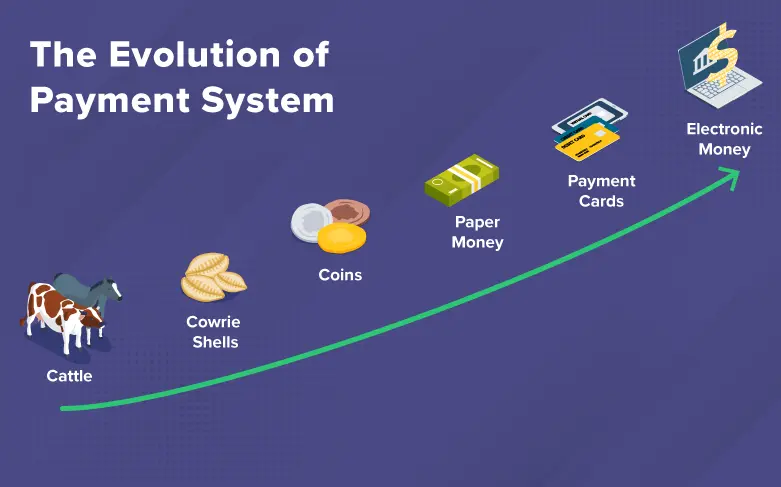The Future of Barter Exchange in India: Opportunities and Challenges
- bxiworldwebsite
- Jul 27, 2024
- 4 min read
In a world where digital currencies and online transactions dominate, the concept of bartering might seem outdated. However, the barter exchange system in India is experiencing a revival, leveraging technology to offer innovative solutions for trade. This resurgence opens up numerous opportunities but also presents unique challenges. This article explores the future of barter exchange in India, focusing on its potential benefits and the obstacles it must overcome.
The Modern Barter Exchange Landscape in India

The barter exchange of India has evolved significantly from its ancient roots. Today, it is not just limited to the direct exchange of goods between individuals but has expanded to include sophisticated platforms that facilitate business-to-business (B2B) and business-to-consumer (B2C) transactions. These modern barter systems are supported by barter companies in India, which provide a structured and secure environment for trading.
Online platforms like BarterDhan, TradeBazaar, and Let’s Barter India are leading this transformation. They offer users the ability to list their goods and services, find suitable exchange partners, and negotiate terms. These platforms have introduced new methods of valuation and trust mechanisms, making barter more accessible and efficient.
Opportunities in the Barter Exchange of India
Economic Inclusivity: Barter systems offer a practical solution for communities and businesses that lack access to traditional financial services. In rural and remote areas, where banking infrastructure may be limited, barter exchanges can provide a means for people to trade their goods and services effectively.
Sustainability and Waste Reduction: Bartering promotes a circular economy by encouraging the reuse and recycling of goods. Instead of discarding surplus items, individuals and businesses can exchange them for needed resources, reducing waste and promoting sustainable practices.
Cost Savings for Businesses: Barter companies in India provide businesses with opportunities to save on cash expenses. By trading excess inventory or unused services, businesses can acquire necessary resources without dipping into their financial reserves. This can be particularly beneficial for small and medium-sized enterprises (SMEs) looking to manage cash flow more effectively.
Strengthening Community Bonds: Barter exchanges foster stronger community relationships by promoting direct interactions and mutual support. This can be especially valuable in rural areas, where social cohesion and collaborative efforts are vital for community well-being.
Diverse Market Access: For businesses, barter systems open up access to a broader market. They can reach potential customers who may not have the cash to purchase their products but can offer valuable goods or services in return. This can help businesses expand their customer base and increase brand loyalty.
Challenges Facing the Barter Exchange of India
Valuation and Fairness: One of the main challenges in the barter exchange system is determining the fair value of goods and services. Unlike monetary transactions, where prices are clearly defined, barter deals require a mutual agreement on value, which can be subjective and lead to disputes.
Legal and Regulatory Issues: The lack of a comprehensive legal framework for barter transactions in India can pose risks. Issues such as tax implications, fraud, and contract enforcement need to be addressed to ensure the smooth functioning of barter exchanges. Barter companies in India must work with regulators to establish clear guidelines and protections for participants.
Trust and Reliability: Trust is a crucial factor in successful barter exchanges. Ensuring that parties involved are reliable and that the goods and services exchanged meet agreed-upon standards can be challenging. Online platforms have introduced rating systems and escrow services to mitigate these risks, but building and maintaining trust remains a significant hurdle.
Awareness and Adoption: Despite its benefits, the barter system is still relatively underutilized in India. Increasing awareness and encouraging adoption among individuals and businesses are essential for its growth. Barter companies in India need to invest in marketing and education to highlight the advantages and practicality of barter exchanges.
Scalability and Network Effects: For barter systems to be effective, they require a large and diverse network of participants. Achieving this scale can be challenging, especially in areas with limited connectivity or low population density. Barter companies need to focus on building robust networks and leveraging technology to connect users across different regions.
The Role of Technology in Shaping the Future
Technology is the driving force behind the modern resurgence of the barter exchange of India. Digital platforms and mobile apps have made bartering more accessible, efficient, and secure. These technologies enable real-time matching of offers, automated valuation systems, and secure transaction processes, addressing many of the traditional challenges associated with bartering.
Blockchain technology, in particular, holds significant potential for the future of barter exchanges. By providing a transparent, immutable ledger of transactions, blockchain can enhance trust and reduce the risk of fraud. Smart contracts can automate and enforce the terms of barter agreements, ensuring that both parties fulfill their obligations.
Artificial intelligence (AI) and machine learning can also play a crucial role in improving the valuation and matching processes. AI algorithms can analyze market trends, user preferences, and historical data to suggest fair exchange values and identify suitable trade partners, making barter transactions more efficient and reliable.
The Future Outlook
The future of the barter exchange in India looks promising, with technology driving innovation and growth. As more individuals and businesses recognize the benefits of bartering, the system is likely to become an integral part of the country's economic landscape. The key to its success lies in addressing the challenges of valuation, trust, and scalability, while leveraging technology to enhance the user experience.
Government support and regulatory frameworks will also be crucial in promoting the growth of barter exchanges. By providing clear guidelines and protections for participants, the government can help build confidence in the system and encourage wider adoption.
In conclusion, the barter exchange of India offers a unique blend of tradition and innovation. It provides a sustainable and inclusive alternative to monetary transactions, with the potential to transform the way people and businesses trade. While challenges remain, the opportunities are vast, and with the right strategies and technological advancements, the future of barter exchanges in India is bright.




Comments